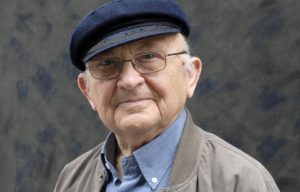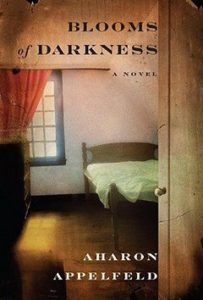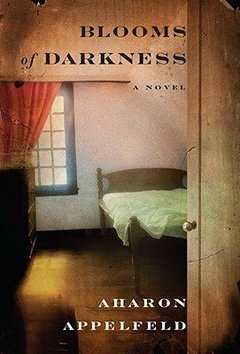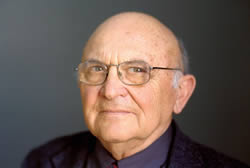Aharon Appelfeld has passed away
 The New York Times reported that the wonderful Israeli novelist Aharon Appelfeld passed away on January 4. I had the great pleasure to interview Appelfeld about the novel Blooms of Darkness for Writerscast in 2010. You can listen to that conversation here.
The New York Times reported that the wonderful Israeli novelist Aharon Appelfeld passed away on January 4. I had the great pleasure to interview Appelfeld about the novel Blooms of Darkness for Writerscast in 2010. You can listen to that conversation here.
Appelfeld was the author of many books in Hebrew and at least 16 of his novels were translated into English from 1981 to 2011, the Times noted. Appelfeld’s works include Badenheim 1939 (an extraordinary and beautiful work), The Age of Wonders, To the Land of the Cattails, The Immortal Bartfuss, For Every Sin, and The Skin and the Gown. Schocken will publish The Man Who Never Stopped Sleeping January 31, and To the Edge of Sorrow in January 2019.
Appelfeld was described by Philip Roth as a “displaced writer of displaced fiction who has made of displacement and disorientation a subject uniquely his own.” Critic Eva Hoffman wrote, “In his call to break the concealed silence, he has courageously begun to illuminate regions of the soul usually darkened by secrecy and sorrow.”
He was a warm and generous man whose life and work touched readers around the world. Tablet magazine published the last interview with him recently.
Aharon Appelfeld: Blooms of Darkness
May 15, 2010 by David
Filed under Fiction, WritersCast
 978-0805242805 – Shocken Books – Hardcover – $25.95
978-0805242805 – Shocken Books – Hardcover – $25.95
Aharon Appelfeld’s Blooms of Darkness is a powerful, majestic and triumphant coming of age novel. It’s told entirely in the first person, in sentences that are short, sharp, clear and beautifully composed. And since we know that it was written originally in Hebrew, the translator, Jeffrey M. Green, deserves special mention for the excellent English version we have here.
The book takes place in an unnamed city in Ukraine from 1943 to the end of the war, not even three years. The narrator and central character is Hugo, 11 years old at the outset of the novel, taken by his mother to stay with her closest friend Mariana, who turns out to be a prostitute living in a brothel. Much of the novel, therefore, takes place in the closet and room they share, under constant threat of exposure and death. The sense of living in a highly charged atmosphere, in such an internal space, is almost palpably claustrophobic, and inhabits every element of the story. The relationship between Hugo and Mariana is the core of the novel; they each suffer, they depend entirely upon each other. Their relationship grows and deepens through the course of the novel and its experience becomes a powerful transformative force for Hugo, who, like the author, survives the war as a completely different person than he was when his story begins.
Aharon Appelfeld has lived in Jerusalem for more than sixty years. He speaks many languages, but now writes only in Hebrew, which he learned only as an adult. We talked in depth about the events and characters in this beautiful novel, the nature of fiction as opposed to memoir, and about the author’s life as a Holocaust survivor and Jewish writer and teacher. Blooms of Darkness is a novel that has stayed with me since I read it; its story is one of hope and survival, as is the life of its author. This novel was transformative for me, as was my discussion with its brilliant author.
Podcast: Play in new window | Download
